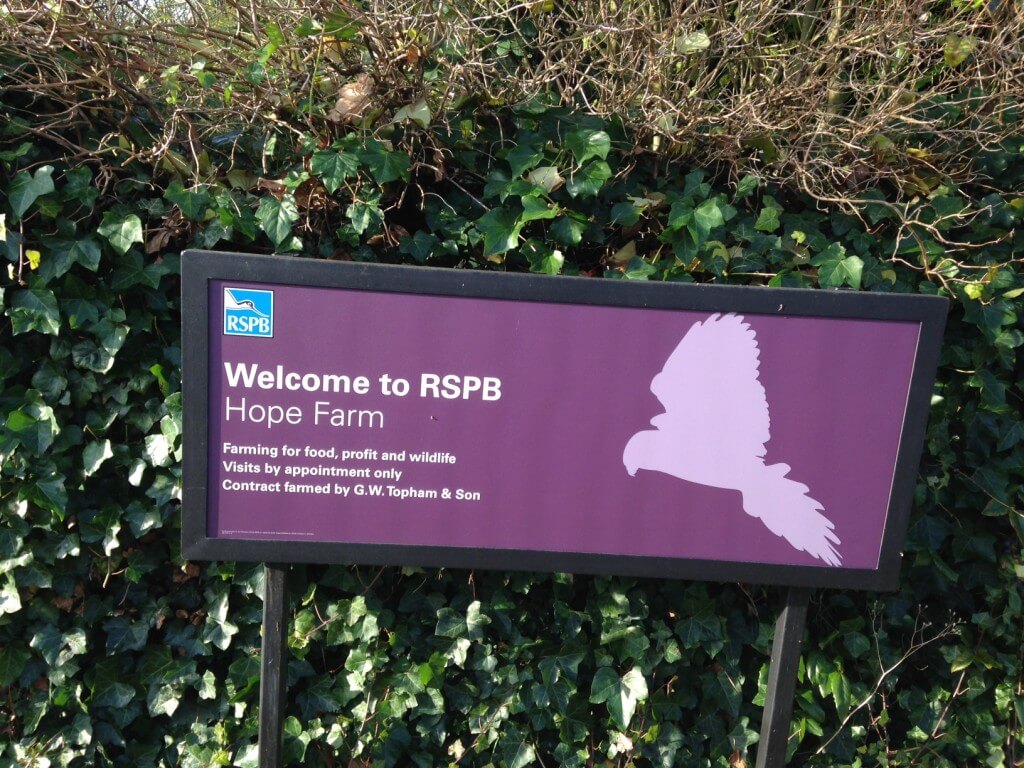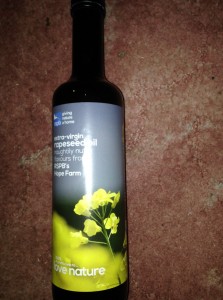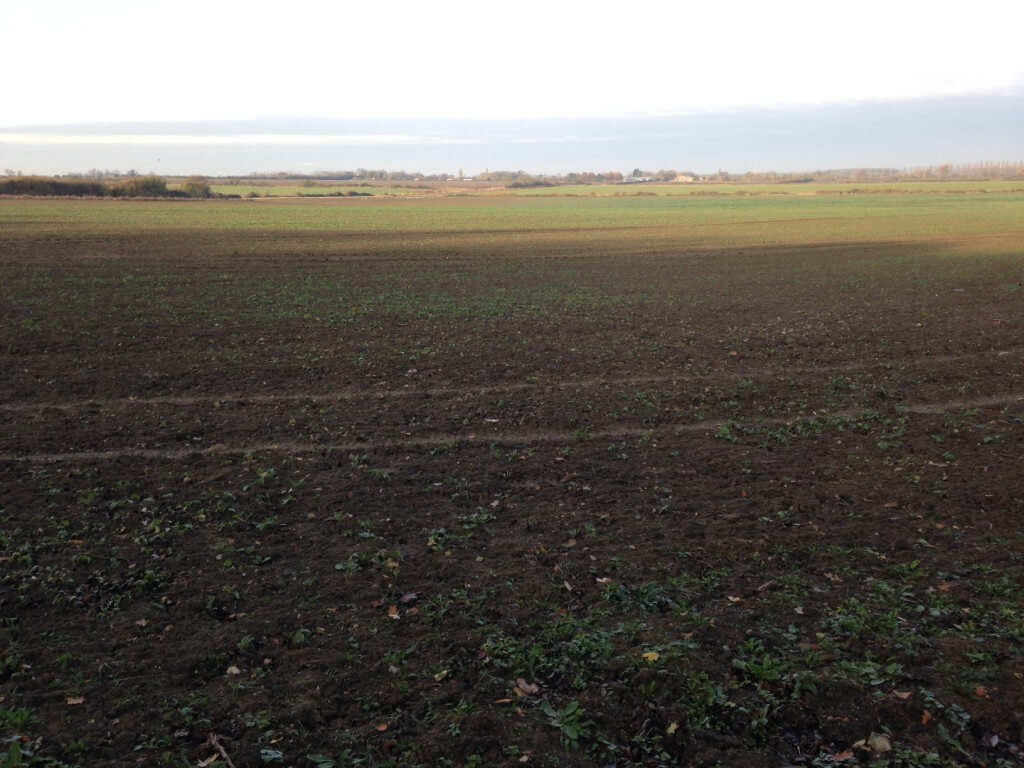
The rspb is following other farmers into the rapeseed oil business. I visited Ian Dillon at Hope Farm last week and had a chat about it with him.
Regular readers of this blog might recall that the rspb bought Hope Farm when I was Conservation Director and so I have a quasi-proprietorial interest in it.
But we also talked about birds. I’d seen Ian in the summer, and he gets a mention in my Passenger Pigeon book (believe it or not). the last time I saw him he was bemoaning the harvest and also the fact that bird numbers, farmland birds, had dropped a bit at Hope Farm for the second year in a row.
Between 2011-12 there was quite a big drop in numbers of Yellowhammers, Whitethroats and Greenfinches at Hope Farm but in 2013 at least Yellowhammers and Whitethroats had recovered a bit. But there had been no Kestrel, Corn Bunting, Turtle Dove or Lapwing at Hope Farm in 2013 and that set the index falling a bit further.
The good news is that it is miles above the national index and if every farm in the country had bird increases like Hope Farm’s since it was established then we wouldn’t be worrying too much about farmland birds. It is so sad that the poorly-led farming industry has not repeated the fairly easy and fairly spectacular increases in wildlife achieved at Hope Farm.

But Hope Farm is a ‘proper’ farm, not a nature reserve, and the mantra that farmers have been told for years is to seek to add value to their produce, rather than simply market commodities. It’s easier for a livestock farmer, perhaps, to see how he (or she) could market cuts of beef, pork or lamb at the farm gate than how an arable farmer could sell us some special wheat or barley.
But it was a farmer down the road from me, Duncan Farrington, who first, I believe, spotted the opportunity to market specially pressed oil from rapeseed as a healthy alternative to other oils. Farrington’s Mellow Yellow is loved by Nigella Lawson (unlike Charles Saatchi) and is available in many slightly up-market supermnarkets.
Now the rspb is following suit – and good for them! Hope Farm produced 90 tonnes of rapeseed last year and four of those have been crushed and bottled by George Munns near Chatteris. A tonne of rapeseed produces 300 litres of what is described as extra-virgin rapeseed oil.
The rspb oil (naughtily nutty) is available from rspb shops and from the rspb online shop.
Ian told me that the rspb had decided to go down this route for a number of reasons: to raise the profile of Hope Farm even further, to make a little bit more money (fingers crossed), to publicise wildlife-friendly farming and also to give rspb members a nudge further towards wildlife-friendly shopping. I hope it works on all levels.
Do remember to vote in the poll to pick the Westminster MP who did the best job for wildlife in 2013. Voting started yesterday and has already attracted over 400 votes.

[registration_form]
Maybe the time has come to change tack a little and rather than accepting that the birds are declining and the new ELS won’t benefit Hope Farm, turn the question on its head and ask what is needed to bring back Corn bunting, kestrel etc ? How much would it cost in terms of running a profitable business and how would you frame grant support to ensure it really happens. That’s an awfully big field in your photo – how about a hedge up the middle and I wonder where the runoff from Hope farm goes ? Although I’m sure RSPB is at the minimum input end of the spectrum, where does all that Nitrogen go ? And couldn’t we as a country save a fortune and save the birds with catch crops or woodland or reed margins to soak up that runoff before it has to be removed from our drinking water ?
Mark any theories as too what is causing this dramatic decline of the not so Common Kestrel?
I read it in the RSPB mag. someone put up 10 open fronted kestrel nest boxes in Essex and six or seven were used. Does this have a message?
Mike – it’s happening right across Europe, so no point looking for a UK-only explanation. Loss of small mammals and large insects in the countryside? A bit of extra competition with larger raptors recovering from persecution?
Guess you will not like my take on this as I think it is a rip off.
Can buy 6 times as much in a supermarket and still get more than a £ change or I can buy real top quality Italian Olive oil considered the best anywhere for half the price.
Someone you know well does not take criticism too well I guess as I am blocked from commenting so could not tell him this when he was pushing this product.
Such is life at that place now.
Give Hen Harriers a home I say.
Dennis – I don’t mind your take on it at all. It’s hardly a rip-off though, as nobody has to buy it. Just walk past and ignore it! But some people will buy it, quite a few I guess, as they have done with Mellow Yellow, and that is money for farmers that is given freely by the public.
I’m not thinking of banning you from here! Not yet… I hope, not ever…
Hi Dennis
I guess that in the strictest sense of value for money, much of the stuff that is marketed by the RSPB (and other charities) is not a bargain to the purchaser (I am sure you can buy tea-towels cheaper at your local market for example). The premium price raises some money for the charity which can be put to good conservation purposes.
I suppose that, by definition, the RSPB is not doing enough for Hen Harriers as long as they continue to be persecuted by gamekeepers and absent from our moorlands but I don’t think that means they are doing nothing (and by the same token no-one else is doing enough for Hen Harriers either) and I would say that the RSPB can certainly claim to have made a difference for birds in general.
Sorry to hear you have been blocked from posting – I don’t think expressing dissenting views is an acceptable reason to be blocked.
Dennis the world becomes a poorer place if we cannot disagree with each other and yet continue a dialogue. So those who have banned you are sad b——s and have also taken one step towards a dictatorship of sorts. You and I may not agree except about the poor Hen Harrier but I value what you say, indeed what everyone writes simply because to come to a proper judgement you need to hear the arguments from all sides so keep dissenting if thats the way you feel. I’m not keen on rapeseed oil whatever the price so will stick to olive.
Thank you Mark,
Paul and Jonathon,thank you for your thoughts something I had not expected,funny enough it doesn’t matter that much but shows in my opinion serious insecurity and the funny part is renewal notice of £50 something came through the post at same time as blocking.Of course I will renew as that organisation does generally great work but we all have weaknesses and leaving would just be petty and do them out of a very small amount of their funds.The people on the ground in that organisation have given OH and myself fantastic help several times especially with regard to WTE on Mull and Cranes on Somerset levels,cannot praise those people enough.
Why do the RSPB use things that are such small problems to foster publicity.
Recently they made a big fuss on their forum about the NHS trimming a hedge and ploughing a field they owned in preparation for building on,sadly of course it was a field that was used by Cirl Buntings but as I believe there are 200 farms participating in the Cirl Bunting scheme suppose we guess at each farm of 5 fields and put in the equation when this scheme set up the RSPB would have to be really dim not to recognize that that field could be developed.The loss I believe works out at something like 0.0001%,seems to me obviously milked for publicity,especially as maybe some sympathetic farmers could join the scheme to replace that one field.It would have been much nicer if they had given thanks to the participating farmers staying with the scheme,(oh yes we have some very helpful farmers that get very little recognition).